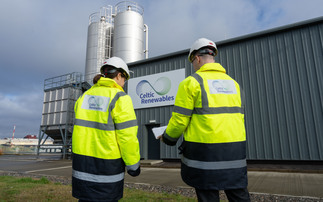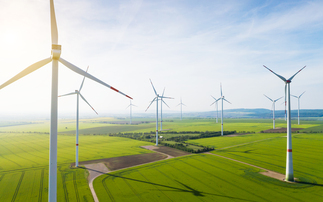Yvo De Boer welcomes divestment push and restrictions on coal lending, but argues developing nations need help to curb dirty coal emissions
When the OECD published its climate finance inventory last week, showing rich countries mobilised $62bn of investment last year to help poor countries tackle the worst impacts of climate change - it noted Japan and Australia controversially believe funding for high efficiency coal plants should also be counted as climate finance.
The OECD disagreed, and its findings discounted the $3.2bn that Japan provided to the coal sector in 2013/14 towards the $100bn per year target that rich countries have set themselves for 2020.
But Yvo de Boer, the former United Nations climate change secretariat chief, reckons Japan and Australia may have a point. He warns that without support for new highly efficient coal plants, the world may end up with something much worse. Speaking to BusinessGreen, De Boer, who stepped down from the United Nations climate secretariat in 2010 following the Copenhagen Summit, and is now Director-General at the Global Green Growth Institute in South Korea, questioned the logic of the OECD ruling.
He argued that new coal projects should count as climate finance in order to strengthen international efforts to work with those developing countries which insist coal will continue to play a major role in their energy mixes.
India, for example - the world's fourth largest carbon emitter - has included highly efficient coal plants in its recently submitted national climate change strategy. It has also said it will only be able to deliver a portion of its climate strategy with help from the international community.
De Boer argued it is too politically risky to tell emerging economies they cannot invest in coal as part of their climate strategies and instead maintained each national plan should be respected for what it is.
"It's a question of ideology," he said. "If I look at the Indian national plan, India has very clear goals on renewables, but it has also openly said 'we are going to rely very significantly on coal, we are going to focus specifically on domestic coal', which is not exactly the best quality coal in the world."
He added that India was therefore arguing that "ultra-supercritical coal fired power generation is going to have to be a critical part of our solution and we will need international support for that" and it could be counter-productive for international bodies to ignore the implications of India's plan.
"If you then, from a logical point of view say: 'Ah well, we're not going to count that towards climate finance', then a consequence of that could be that India does not go for ultra super critical coal fired power generation [and goes for something more polluting]," De Boer warned.
Climate finance was in the spotlight over the weekend at the IMF and World Bank annual meetings, where a number of development banks pledged to increase their lending to climate themed projects.
De Boer expressed hopes the growing number of lending restrictions being imposed by multilateral and corporate banks will prevent new coal plants being financed.
The World Bank, for example, does not invest in coal and the European Investment Bank has an Emissions Performance Standard (EPS) which restricts lending to most coal power plants. With multilateral development banks accounting for one third of climate finance last year, any rules they have on emissions would have a major impact on the coal market.
Added to this, a growing number of banks are turning their backs on increasingly risky coal assets, recognising they could become "stranded" as a result of ever tightening climate change legislation. Just this month Citigroup became the latest bank to pledge to cut lending to coal mining companies citing the "tremendous" challenge of tackling climate change.
De Boer argued that this market-driven approach could in itself prevent new investments in coal plants, without the need for additional restrictions on the climate action plans developing nations, such as India, choose to put forward. "This process is not about imposing targets or methodologies top down," he said. "If this target is all about commitments volunteered by countries themselves then the assessment should be 'what are you contributing towards a country's national ambitions irrespective of what those national ambitions are?" he said. "Then it should be up to individual financial institutions where they decide to invest."










